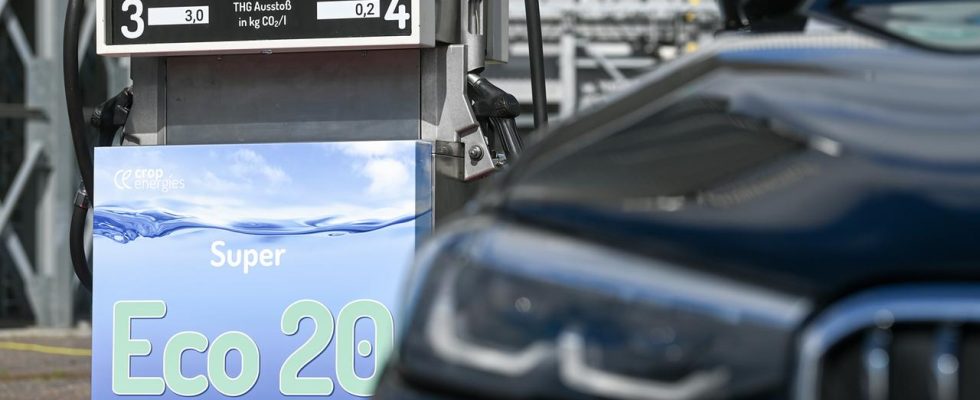As of today, the first public gas station in Mannheim is offering Super E20 fuel. It is an ethanol manufacturer’s fleet experiment. However, the addition of bioethanol remains controversial.
Special fuel cards and a lock on the pump are intended to prevent drivers from filling up with fuel that has not yet been approved. As of today, only 85 selected vehicles can be filled with Super E20 at the octane filling station in Mannheim. It is a test run on in-house vehicles from Südzucker AG, based in Mannheim. VW and BMW vehicles in particular, but also models from Seat, Skoda and Audi are part of the fleet test.
For three years, the premium gasoline was “extensively tested for emission parameters and technical parameters, primarily to find out how vehicles tolerate the new E20,” said Jörg Willhauck, company spokesman for CropEnergies AG – a company that went public in 2006 and is majority owned by belongs to the Südzucker Group. In the test phase starting today, the main focus is on mixed fueling, CO2 savings and public relations, according to the company.
More ethanol for more climate protection?
Ethanol blends in fuels have been used for decades to reduce the share of fossil fuels and to reduce dependence on oil imports. With E5 the proportion of bioethanol is a maximum of five percent, with E10 it is between zero and ten percent. With the new E20, the manufacturer wants to add no less than 20 percent so that “maximum CO2 savings” are possible, says Willhauck.
The company promises that mainly fodder wheat is used for production, which is “not of bread quality”. “We take the starch out of the wheat, which is then converted into sugar. The sugar is then fermented and processed into bioethanol,” explains Willhauck.
“In direct competition with food production”
Environmentalists are critical of the production of ethanol for fuel. “First growing food on huge areas and then using it as fuel in combustion vehicles is a sure way to fuel the food crisis, climate crisis and species extinction at the same time,” warns climate and transport expert Johanna Büchler from German Environmental Aid. These large areas that are necessary to produce the fuel are also not taken into account in the official greenhouse gas balances, says Büchler.
Across the EU, around 10,000 tons of wheat are processed into fuel every day, which is equivalent to 15 million loaves of bread, says Büchler. “This means that the production of this fuel is in direct competition with food production,” said the expert. The scientist criticizes that this drives up food prices and particularly affects poorer people. “In addition, the Federal Environment Agency has classified the use of these fuels as environmentally harmful in every single report for 15 years. That is a clear statement. The climate protection argument is not correct,” said Büchler.
ADAC for higher Admixture quotas
Of course, the production of bioethanol should not be at the expense of the food supply, but must be made from residual products and organic waste, emphasizes Michael Gebhardt from the ADAC automobile club. “However, a higher admixture of ten to 20 percent takes environmental protection into account and offers even more savings potential because no new CO2 is released,” says Gebhardt.
The ADAC spokesman emphasizes that we are still a long way from bringing Super E20 to market and this could take years. “The fuel quality standard still has to be changed, and the car manufacturers also still have to start releasing their vehicles. As of today, it is not possible to say which cars are E20-compatible,” said Gebhardt.
In addition, the market share of the current Super E10 gasoline is only 24 percent, although 95 percent of vehicles can be fueled with it. “When E10 was introduced, many consumers were initially unsettled, which is why most drivers don’t want to fill up with the gasoline mixture.” When marketing E20, it must be communicated more clearly that it is in no way harmful to the car, said the ADAC spokesman.

